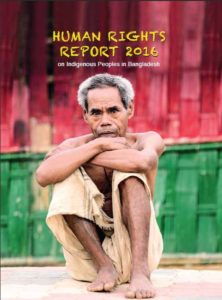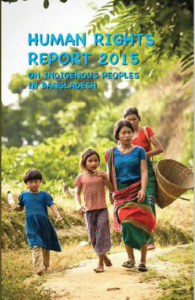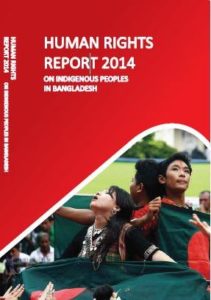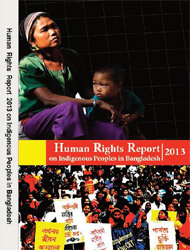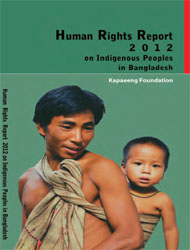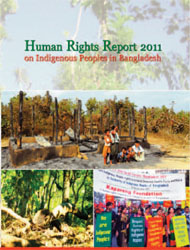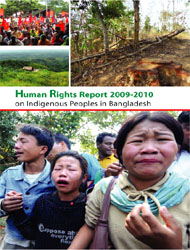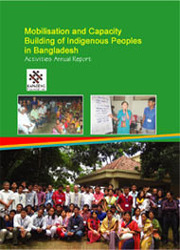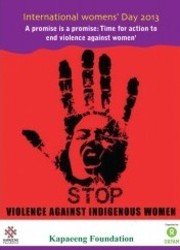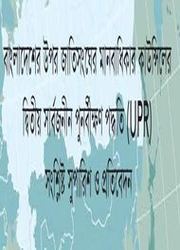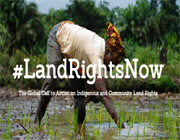Indigenous women leaders submit a joint statement on VAIW in Bangladesh to the UN Special Rapporteur on VAW Ms. Rashida Manjoo
On 27May 2013, eight indigenous peoples’ organizations, namely, Kapaeeng Foundation, Bangladesh Indigenous Peoples Forum, Bangladesh Indigenous Women Network, Jatiyo Adivasi Parishad (National Indigenous Council), Adivashi Nari Parishad (Indigenous Women Council), Joyenshahi Indigenous Development Council, Garo Indigenous Michik Association, Abima michik Association, Bangladesh Indigenous students action Forum, Khagrapur Mahila Kallyan Samity, Maleya Foundation submitted a joint statement on Violence Against Indigenous Women (VAIW) in Bangladesh to Ms. Rashida Manjoo, UN Special Rapporteur on VAW during her first visit in Bangladesh as an independent expert designated by the UN Human Rights Council. Ms. Rashida Manjoo paid visit Bangladesh from 20 to 29 May 2013.
The statement focused on four key issues which are causing VAIW in Bangladesh and required special attention to address as follows: (1) Sexual violence against indigenous women and their access to justice; (2) Physical violence and marginalization within indigenous communities; (3) Lack of government policies and legislations; and (4) lack of political participation of indigenous women. Each issue was summarized by particular recommendations based on the views and experience by indigenous women/peoples in Bangladesh.
Ms Bipasha Chakma from Kapaeeng Foundation presented the statement of VAW issues on behalf of all signatory organizations. In order to explain the overall situation of Indigenous Women (IW) in Bangladesh, it has been informed that indigenous women are the most marginalized and vulnerable groups of women in Bangladeshi society because of their gender, ethnicity, religion and socio-economic marginalization. The VAW comes in many forms such as domestic violence, rape, assault, sexual harassment, prostitution, trafficking, abduction and forced marriage and early marriage of girls.
A discussion was carried out under the first issue that one of the biggest issues in the CHT is the increasing violence against women and the absolute impunity perpetrators enjoy due to lack of access to justice. Most of the sexual harassment such as rape and attempt to rape in CHT has been committed by the Bengali settlers and also law-enforcers. None of the women victims of violence received justice from CHT in 2007-2012. There are a number of examples that show that perpetrators enjoy full impunity in that kind of VAIW, leading to an established ‘culture of impunity’ covering the Bengali settlers and security forces in the CHT.
Secondly, reported on the physical violence and marginalization within indigenous communities. Although indigenous societies are much more liberal than the majority Muslim-Bangali society, their customary laws and family roles are just as patriarchal and discriminatory. It is noteworthy that domestic violence against indigenous women is increasing, and the patriarchal society is the root cause of domestic violence. A discriminatory customary law on inherit property and the traditional structure within indigenous community have been contributing VAIW.
Moreover, a crucial fact has been discussed in the written statement regarding women rights that IW are victims of the forced intermarriage, an instrument maneuvered by Bengalis to assimilate the indigenous people into mainstream Muslim Bengali society and to alter the demographic profile in the CHT. Many indigenous women had been kidnapped, then forcibly converted to Islam and married by Bengali Muslims. In such case, if any indigenous woman had refused to be converted and married, she was murdered.
Lack of government policies and legislations of indigenous women such as the Constitution of Bangladesh does not recognize the indigenous as ‘Indigenous Peoples’, lack of clear provision for IW in the National Women’s Development Policy 2011, non activism of the Prevention of Women and Children Repression Act 2000 were contributed not to do anything substantial to stop VAIW in CHT.
Finally, it was discussed about lack of political participation of indigenous women in the parliament of Bangladesh. Although there are 50 seats are reserved for women, unfortunately there is no reservation for indigenous women in the parliament. In the CHT Accord and laws concerned, 3 out of 34 members in each Hill District Councils (HDCs) and 3 out of 22 members of CHT Regional Council (CHTRC) are reserved for women. However, except Rangamati Hill District Council, there is no women representative in current interim bodies of three HDCs, composed of 5 members each. It is noteworthy that women impact on decision-making is yet not felt strongly in both CHTRC and HDCs.
Recommendations:
- Take effective measures for immediate and full implementation of CHT Accord of 1997 to ensure lasting peace, security and development for indigenous women in the CHT;
- Form a special body to inquire into the sexual cases against indigenous women and bring the perpetrators into justice, ensuring exemplary punishment for the violators;
- Take effective measures to ensure access to justice for indigenous women of Bangladesh, especially making the overall legal and judiciary system as indigenous-women-friendly;
- The Government of Bangladesh can provide a strict timeline for processing VAW cases.
- Respect traditional land rights of indigenous peoples, in compliance with ILO Convention No. 107 on Indigenous and Tribal Populations, and pay special attention to the issue of land grabbing by land grabbers – Bengali settlers and other outsiders – to ensure security of indigenous women;
- Ensure legal and administrative arrangements for indigenous women’s representation and partnership in all levels, including the parliament and local government bodies;
- Ensure legal, logistic and all other necessary supports to the indigenous women victims of violence.
- Sensitization of law enforcement agencies and administrations with regards to VAW issues;
- Develop specific training curricular by government on the rights of indigenous peoples including Indigenous women, CHT Accord, the country’s cultural diversity and special legal and legislative framework for CHT and indigenous peoples for Bangladesh Public Administration Training Centre (BPATC) to train its public servants;
- Provide training to traditional leaders on women rights reviewing their arbitration system by Bangladesh Government.
- Develop an action plan to prevent VAW in CHT in collaboration with NGOs and civil society.
- Inserting a separate chapter in the National Women Development Policy for indigenous women terming them as ‘Indigenous Women.
- Ensure reserve seats for indigenous women representatives from plains and CHT



